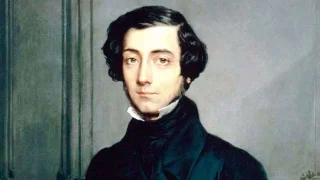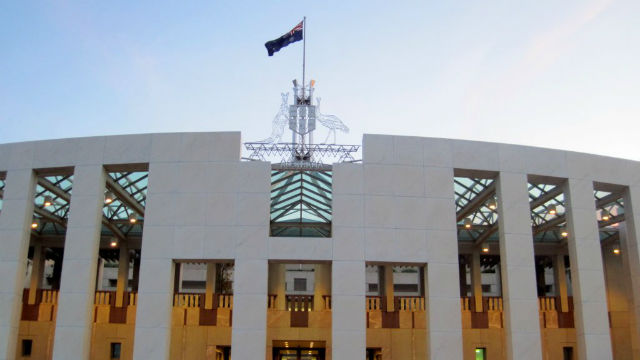Traditions of Liberalism: Essays on John Locke, Adam Smith and John Stuart Mill – Foreword
In the preface of his On Classical Liberalism and Libertarianism, Norman P. Barry observes:
Despite many similarities in policy prescription the prominent classical liberals differed greatly over the fundamental theoretical premises on which these policies were founded… Furthermore, the differences that are easily detectable in their works reflect some of the oldest and deepest problems in the history of political thought. (p. ix)
This passage succinctly summarises the problem that prompted the appearance of this book: namely, that the ‘liberal tradition’ quickly dissolves under analysis into a variety of strands of thought based on diverse and sometimes mutually exclusive antagonistic assumptions. But the matter is even more complicated than that. Each of those contributory strands is itself open to a variety of conflicting interpretations. And what exactly is the thing they contribute to? Should we dispense with the idea of a single liberal tradition? Or as the title of this volume suggests, characterise liberalism in terms of several coexisting traditions? Or is the very idea of a ‘tradition’ of thought a misleading fiction that imposes on a group of thinkers a common focus of concern that they could not themselves have intended or recognised?
These are the issues that this volume addresses. Thus, it does not offer a simple exposition of the thought of the three key figures in the history of liberalism. It does not present liberalism as some convenient combination of Locke’s theory of natural rights. Smith’s account of the sector self correcting mechanism of the free market, and Mills is advocacy of personal liberty and individuality. Instead, three specialists consider each thinker from the standpoint of a putative liberal tradition. The result is a collection that throws much new light on all three thinkers, but renders somewhat controversial, their hitherto secure status as ‘liberals’.
Not that there is necessarily any unanimity among the contributors on the correct interpretation of their respective subjects of inquiry. Thus, the more familiar pictures of Locke and mill, as clear advocates of liberal conceptions of freedom are vigorously and freshly painted by Alan Ryan and C.L. Ten. But we are also offered new and unfamiliar versions surely lead with claims that Locke was no friend of the rule of law, the doctrine that requires us to observe general rules of conduct so that we can all safely pursue our individual self chosen goals. Since he thought we were obliged to carry out God’s purpose as made clear through natural law. John Gray goes beyond the commonplace observation that mill toyed with semi socialist schemes to claim that his entire liberal doctrine was flawed by an excessive faith in reason, and by the divorce he postulated between production and distribution. These gave birth to a ‘revisionist’ liberalism, that in the present century has largely displaced the skeptical, cautious ‘classical’ liberalism of Smith and his school. So such provocative interpretations are unlikely to become the received ones, at least in the foreseeable future. But they raise doubts about the coherence and even the existence of any such thing as a ‘liberal tradition’.
This issue is most explicitly treated in the papers on Smith. William Letwin and Donald Winch argue that Smith’s politics, unlike his economics, were hardly liberal. But Winch goes on to insist that asking whether Smith was ‘really’ a liberal risks falling into some bad intellectual habits, rather than trying to recruit the 18th century Smith into what emerged self consciously as a tradition only in the 19th century, which recommends the ‘recovery’ of the real Smith, by establishing the intellectual and linguistic context in which he wrote and deriving from that some understanding of the intentions he might have had in writing what he did.
The soundness of this essentially historical approach to the study of political theory, need not, however, rule out the validity of the intellectual construct of the ‘tradition’ of ideas in his introduction to the volume, Knut Haakonssen urges historians of ideas, to recognise a ‘methodological pluralism’ that legitimises the division of labor in the way they approach this subject. Kenneth Minogue’s concluding chapter certainly demonstrates that a successful characterisation of a tradition of thought combines the historian sense of nuance and diversity with the philosopher’s grasp of logic and coherence. While recognising that identities are elusive, and can never be completely encapsulated in words Minogue finally settles on this formulation: “The liberal tradition is a political practice in which reason is brought to bear upon political and social arrangements, so they can be continuously modified according to what individuals judge ought to be done.” (pp 195-6). This is a highly formal definition, but Minogue is confident that it succeeds both in distinguishing the liberal tradition from its conservative and socialist rivals, and in accommodating the diversity of foundations that liberals themselves have proposed for their beliefs.
— Michael James
Introduction: Liberal Traditions and the History of Ideas
Knud Haakonssen
It is pure illusion to think that an opinion which passes down from century to century, from generation to generation, may not be entirely false. Pierre Bayle
Liberalism is a notoriously ambiguous concept. More than anything else, this has led to persistent historical contests for the idea. Thus, while the label is young, the thing in itself has been pursued across every epoch back to ancient Greece. The result has been not only a plurality of liberal traditions but also a general uncertainty among liberals about the nature and purpose of the invocation of the past. What begins as an historical search for liberalism’s identity or, worse, ‘definition’, too often proceeds through a supposed sharing of the insights of the past, to a barely disguised prescriptive use of that past. Yet liberals of all persuasions alike tend to distinguish themselves from conservatives by decrying the notion that history is authoritative, a point never more eloquently made than by F.A. von Hayek in The Constitution of Liberty (Hayek, 1960: 397-411).
To the extent that liberals have paid attention to this problem — and too often they have not — they would seem to have adopted a more or less intuitive version of Karl Popper’s ‘rational theory of tradition’. That is, they have extended Popper’s parallel between social traditions and scientific theories to theories of politics:
we should always remain conscious of the fact that all social criticism, and all social betterment, must refer to a framework of social traditions, of which some are criticized with the help of others, just as all progress in science must proceed within a framework of scientific theories, some of which are criticized in the light of others. (Popper, 1972: 132)
From this perspective, the proper use of past liberal ideas is to identify the problems of the present and the theoretical and conceptual means of their solution.
The use of tradition to cast light on the present fits well the dominant tendency in modern theories of intellectual history, especially theories of the history of political thought. John Pocock has refurbished Hegel’s distinction between pure reflective history and pragmatic-reflective history, although denying the dialectic between them (Hegel, 1980: 16-23). Pocock, agreeing with Quentin Skinner, suggests that we must maintain a sharp separation between ‘genuinely historical history’ and the philosopher’s, or political theorist’s, use of past thinkers. The theoretician may read a text from the past and find that it suggests many trains of thought worth pursuing as part of the discipline of political theory or philosophy. To pursue them is a wholly legitimate activity; it does not invalidate, and is not invalidated by, the historian’s activity of seeking to establish what trains of thought were being pursued — or what other intellectual or linguistic performances engaged in — by the author who wrote the text, or by persons who read and responded to it in his time or thereafter. … What cannot be legitimised, but is for several reasons very difficult to avoid, is that he/she should proceed as if interpretations of the text so constructed could be made the foundations of historical interpretation: as if meanings discovered by non-historical means for non-historical purposes could be treated as meanings borne by the text, or intended by its author, in history; and as if histories of political thought could be constructed in terms of the being and becoming of meanings and intentions so discovered. (Pocock, 1979: 96).
Historians like Pocock (and Skinner) will thus grant theoreticians like Popper (and Hayek) that the past may be used legitimately as a rationalised tradition in debating contemporary issues. But the former deny that such a use of the past has anything to do with ‘the activity of being a historian’. On their view, a conference devoted to elucidating ‘The Liberal Tradition’ through discussion of the works of three great political thinkers of the past may be a useful exercise in modern political theory and philosophy. It is not, however, respectable intellectual history. Yet the discussion at the conference, and the papers themselves, seem to offer both historical and theoretical insights, and these do not appear to be the outcome of essentially different activities. How, then, are history and theory related in our studies of past political thought?
The historians’ sharp separation of theory and history is based on the view that the chief subject of the historical study of past political theory is the linguistic behaviour of agents in history. The notion that linguistic usage should be an object of behavioural study has its origins in Wittgenstein’s theory of language and, more immediately, in the theory of speech acts developed by thinkers such as J.L. Austin and J.R. Searle (Austin, 1971; Searle, 1969). According to this theory, our use of language cannot be understood merely as oral or written utterance with propositional meaning, i.e. with sense and reference — the so-called locutionary function. We must, in addition, understand the use of language as an act, as a form of behaviour which meshes with the rest of the speaker’s behaviour. Like other deliberate behaviour, it has a point, a purpose, a ‘force’; this is the so-called illocutionary function or force of language (Austin, 1971: 99-131. We need not be concerned with Austin’s third category, perlocution; see 1971: 101-31). In order to understand the second, i.e. what the author was doing in saying or writing something, we need to know the situation or context in which he was doing it. Otherwise we shall not see the point of his action but be left with a free-floating statement. Hence the method recommended by the speech activists among the historians is often referred to as the contextualist method. Although ideally we should study linguistic behaviour in the context of the author’s general behaviour, we cannot, of course, observe the behaviour of the past. To a large extent we must rely on linguistic reports of it, i.e. on the other speech acts, though historians naturally draw on additional evidence of past behaviour. Consequently, the context for a given past speech act is primarily, though not exclusively, linguistic in character, a point eloquently stressed by Pocock (e.g. Pocock, 1987: 20).
The effect of the contextualist turn in recent historiography of political thought and, to a smaller extent, in other areas of intellectual history, has been dramatic and, in my opinion, beneficial. It has provided an ever richer texture in many areas of history, which has led to an unprecedented rapprochement between the history of political thought and other areas of history. It has begun to dispose of the ocean of anachronism which used to overflow the history of political thought. In some cases, notably those of Hobbes, Locke and Smith, it has led to important revaluations of major thinkers in the traditional ‘canon’, and it has created a rising standard of excellence in historicity in other areas of intellectual history.
It is a pretty question whether the intended divorce of history and theory has been achieved and even more problematic whether any failure in this respect is due to inattention to the methodological lessons offered or to some inadequacy in these lessons. It seems to me that the historical and theoretical pursuits of political ideas are as intertwined as ever and, although this is not the place either to document or defend this practice, it is a place for putting forward another perspective on the study of intellectual history than that provided by the speech activists banning theory from history.
At the heart of the matter is the speech-act theory mentioned above. While its proponents are aware that this theory encompasses both the locutionary and illocutionary functions of language, the former, nevertheless, play no role when they apply the theory in their historiographical program. The background to this neglect is undoubtedly Austin’s insistence that the two functions of language are intertwined in every utterance, so that referential function must be understood in performative context. Although adhering to a correspondence theory of reference, the truth of a description, considered as an utterance, is thus supposed to be a matter of its adequacy to the language-community in which it is being uttered. ‘True’ means ‘very well said’, as has been said very well (Passmore, 1966: 467).
Despite Austin’s own attempt to achieve a balanced view, the referential function of language, as ordinarily understood, has to a large extent gone begging for a place in the contextualist methodology. For the purposes of formulating a methodology for, or even an attitude to, the study of the history of ideas, we do not, however, have to commit ourselves to an elaborate alternative metaphysical and linguistic theory about the ‘real’ referents and the proper referential function of language. We can take it as a matter for exploration rather than assertion that given utterances have identifiable objects of reference. If we accept that many utterances are intended to say something about these objects — in addition to whatever else the speaker may be ‘doing’ in the uttering — then it would seem to be part of the intellectual historian’s task to write the history of the utterance not only as a performance, but also as a reference. The latter, however, cannot be done except through an investigation of the purported objects of reference, which in intellectual history will primarily be the ideas employed by a historical speaker in making his utterance. (Needless to say, I am not claiming that all referents are ideas.)
Once we see this as our task, we can no longer entirely reduce intellectual history to the history of discourse in the sense of linguistic performance. We must always bear in mind that the speaker’s choice of words may be inadequate in some way to the formulation of the ideas he is trying to express. Since linguistic expression is the only immediate source for the ideas in question, historians seek to check their interpretations in various indirect ways. Some draw on the theoretical constructions of social psychology, in the broadest sense, and thus try to produce a so-called history of ‘mentalities’. Others invoke one or another psychoanalytic theory, creating psycho-histories. Marxists will read the historical text as ideology and thus link it to the unfolding class-struggle. The contextualist historians will protest against all this in the name of ‘genuinely historical history’, insisting that the text be read on the specific linguistic premises of a particular situation.
At their best, all these, and still other, approaches have yielded outstanding contributions to historical understanding. They have served to correct the merely anachronistic writing of history-as-the-record-of-progress, which is popularly referred to as “Whig history”. Yet unless we want to reduce ideas to the somewhat mysterious expression of collective mentalities, or to something purely psychological, or to epiphenomena of social and economic forces, or to linguistic behaviour, there is evidently something missing, namely the history of ideas. When one or all of these ways of writing the history of thought have been tried, there will often be not only room but need for an investigation of the ideas thought, simply as ideas. In order to do this, however, the historian has to understand the ideas in question, not just as mental, social and linguistic events, but as intellectual phenomena with their own logic. By this I mean that the historian has to reconstruct the premises for, and implications of, theories. He has to consider possible alternative formulations of distinctions and problems; and he has to do this in order to gauge exactly where in this intellectual problem-situation specific historical formulations of ideas are to be located. Through an understanding of the logical possibilities in a theory or in a complex of distinctions and problems, the historian can appreciate not only the particular route taken by a past author or speaker but also, and not least, the routes not taken — the logical implications of a theory which were not drawn, the inconsistencies which were not seen, the looseness of distinctions that were taken to be exhaustive. This is not to say that the historian’s task is to record what might-have-been, the historical counter-factuals. It is to claim that our appreciation of the logical possibilities in a situation structures the questions we must ask in order to make the historical agent’s response intelligible to us.
Here the interchange between the history of ideas proper and the other approaches to intellectual history becomes particularly valuable. Very often we shall be satisfied that some logically possible implication or distinction was not in fact drawn because the author concerned did not find it within the mental horizon of his society; or because he happened to have some particular psychological blockage against it; or because it was not part of the discourse he had available to him and thus not what he could be doing in the situation. While such answers, and especially the last, often satisfy us, they are, from the standpoint of argumentative logic, extraneous, and they may be too easy a way out. More particularly, they may be resorted to prematurely. It is important, therefore, that our explanation of ‘errors’ and ‘missed opportunities’, as they appear to us in analysing a complex of past thought, be sought first in purely argumentative terms. Only then can we be confident that we have comprehended our author’s understanding of the ideas he is trying to handle and thus that we can apply the other methods of explanation in the right place.
The approach is not, as sometimes alleged, based on the assumption that our past author was perfectly rational, whatever that may mean. It is exactly because we do not know his rationality, its extent and its nature, that we must appreciate the logic of the ideas he was trying to deal with. In doing this we cannot a priori exclude any theoretical insights. It would be foolish to assume that either the author’s or his linguistic community’s formulation of a set of ideas was exhaustive of the argumentative potential of these ideas. While we should start from such formulations as our explananda, we should, as preparation for our explanations, utilise the theoretical insights gained from all periods, including our own. The purpose is not, of course, to ascribe to past authors ideas they did not have. The point is that fruitful intellectual history is not simply the record of successfully expressed ideas, but also an explanation of mistakes, of missed opportunities, of the only half-understood. If we neglect this, we will not press our historical material hard enough nor will we understand the intellectual problem-situation or context which one generation, more or less unintentionally, presents to the next. It is not only an author’s actual utterances that have unintended consequences, a point made with extraordinary force by Skinner in his magnum opus; the ideas the author tries to express often have unintended implications of consequence. At the same time it must be emphasised that to pursue the history of ideas in this way is not to judge the truth-value of past theories and complexes of ideas and thus to assess the ‘contribution’ of past thinkers to the present state of knowledge. A clear distinction between the validity of a conclusion given certain premises, and the truth of the argument as a whole is to be maintained here. The argumentative possibilities open to Locke, given his theological premises, and thus the connection between these premises and, say, his theory of rights is the business of the historian of ideas; the truth of the whole proceeding is a matter for the philosopher. It is quite possible, however, that the former will gain from the latter new ways of probing his material.
If the history of ideas is pursued in the manner briefly indicated here, the relationship between history and theory is no longer entirely one-sided. In addition to any enlightenment contemporary theory may derive from the great thinkers of the past, the reading of their ideas may benefit from the insights of subsequent generations, including our own. This suggestion is neither an endorsement of anachronism nor of teleological history. In utilising the theoretical tools of a later period to elucidate the ideas of an earlier one we must, of course, resist any temptation to transpose the former on to the latter. One of the main benefits of the contextualist fashion in modern intellectual history has been to make historians of ideas more honest in this regard. Similarly, the speech activists have served us well in raising against any tendency to ‘explain’ the past as a present whose goal is the present. There remains, however, a distinction between, on the one hand, gauging the logical or argumentative potential of past ideas by means of present insight and, on the other, saying that the latter were already here in the past, or that we can understand past ideas because they lead to the present (whether this has happened or how is a further historical problem).
Apart from the charges of anachronism and teleology the history of ideas as now sketched may lay itself open to the charge that such an approach presupposes that there are ‘universal, trans-historical ideas, theories, problems, etc.’, such as A.O. Lovejoy’s great ‘uni-ideas’ (Lovejoy, 194: 1-2). This is obviously not so. The point of the present approach is precisely that we have no means of knowing whether there are such ideas except by piece-meal investigation. We cannot start from such ideas; whether we can end up with them is at least questionable. Since it seems impossible to specify what ‘universality’ is being referred to in talking about ‘universal’ ideas, it is extremely difficult to give the notion a specific meaning. The ‘universality’ of ideas is a matter of degree, and the degree is determined by the perspectives from which we choose to compare historically given ideas.
In practice we must elucidate ideas from different periods and contexts in the light of each other, and the suggestion made here is that it is up to our theoretical ingenuity to make this more and more enlightening for each idea in its context.
My insistence upon the possibility of a history of ideas is emphatically not to be taken as a suggestion that this should replace other approaches. My concern arises from a monopolistic claim made by the supporters of these various methodologies. It seems to me that intellectual history perhaps more than any other domain of history calls for a methodological pluralism, and I have no doubts about the necessity for an intimate connection between the contextualists’ study of past thought as discourse and the sort of history of ideas suggested here.
In fact, such a combination has been variously attempted with extraordinary success in modern German historiography by so-called conceptual history (Begriffsgeschichte). Typically this form of integrated history has been practised by teams of historians writing cyclopaedic works; for the solitary historian and the individual monograph it is obviously a tall order. There is, however, a division of labour in intellectual history, and this ought to be legitimated by the methodological pluralism indicated here. In such a scheme there is no room for the idea of ‘total history’: we have to make do with the totality of histories as we find them at any given time.
Against this background it makes perfect sense to ask half a dozen distinguished colleagues to ponder ‘the liberal tradition’ through the works of Locke, Smith and Mill, knowing full well that the implied notion of ‘tradition’ is a nineteenth-century construct. It makes equal sense for the outcome to be labelled ‘liberal traditions’. Whether the authors’ maps of the diffusion of concepts indicated by this label are accurate is a further question to be answered by the reader. To ask the original question is, I submit, not only a liberal, but a legitimate tradition.
The attached pdf has been manually scanned from the original printed book.
Chapters
- John Locke: Liberalism and Natural Law – Shirley Robin Letwin
- Locke on Freedom: Some Second Thoughts – Alan Ryan
- Comments on Shirley Robin Letwin and Alan Ryan – Lauchlan Chipman
- Was Adam Smith a Liberal? – William Letwin
- Adam Smith and the Liberal Tradition – Donald Winch
- Jurisprudence and Politics in Adam Smith – Knud Haakonssen
- Mill’s and Other Liberalisms – John Gray
- Mills’s Defence of Liberty – C.L. Ten
- Liberalism and its Defence: A Lesson from J.S. Mill – Philip Pettit
- Theorising Liberalism and Liberalising Theory – Kenneth Minogue










